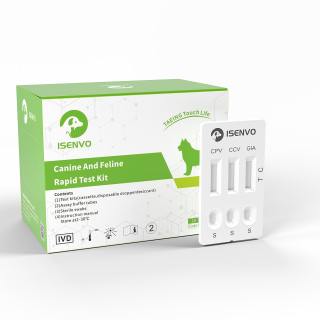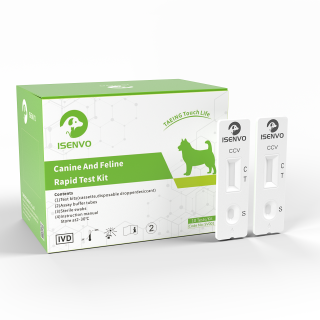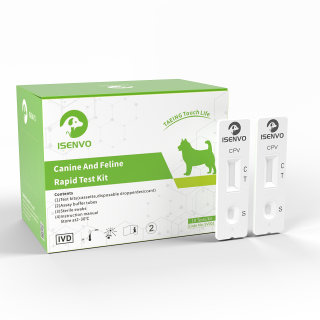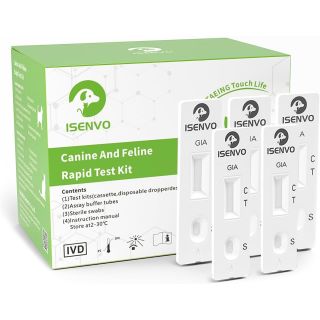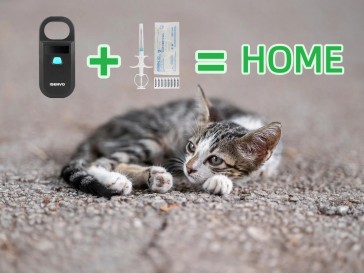In environments where dogs live closely together—family homes, shelters, boarding facilities, or breeding kennels—infectious diseases can spread quickly and with serious consequences. Canine Parvovirus (CPV), Canine Coronavirus (CCV), and Giardia are three of the most common and potentially dangerous causes of gastrointestinal illness in dogs.
Thanks to advancements in veterinary diagnostics, early detection is now more accessible than ever. Understanding these diseases and acting quickly can make all the difference.
Understanding the Threats
Canine Parvovirus (CPV)
A highly contagious viral disease that targets the intestinal lining.
Key symptoms:
Vomiting
Bloody diarrhea
Rapid dehydration
Fever and lethargy
Without prompt care, CPV can be fatal—especially in puppies and unvaccinated dogs.
Canine Coronavirus (CCV)
This virus affects the gastrointestinal tract, often resulting in:
Watery diarrhea
Vomiting
Loss of appetite
CCV alone is often mild, but when co-infection occurs (e.g. with CPV), the outcome can be more severe.
Giardia (GIA)
A microscopic intestinal parasite that spreads through contaminated water or feces.
Symptoms include:
Persistent or intermittent diarrhea
Soft or foul-smelling stools
Weight loss or failure to thrive in puppies
Though often overlooked, Giardia is highly transmissible in group environments and can lead to chronic digestive issues if untreated.
Why Early Detection is Critical
The initial symptoms of these infections can be vague and overlap with many other conditions. Left undiagnosed, they can progress quickly or spread to other animals.
Timely screening offers several advantages:
Faster diagnosis and treatment
Reduced risk of outbreaks in shared spaces
Lower long-term veterinary costs
Better recovery outcomes for affected dogs
Practical Solutions for Everyday Use
Today’s rapid screening tools make it easier than ever to check for multiple pathogens from a single sample. These solutions are especially useful in:
Veterinary clinics for first-line triage
Shelters and rescues during intake or isolation
Breeder facilities as part of routine health checks
Homes with multiple pets when symptoms appear
These rapid antigen tests are designed for speed, accuracy, and simplicity—providing results in as little as 10–15 minutes.
Supporting Dogs Through Prevention and Care
While testing is important, a holistic approach to canine health also includes:
✅ Vaccination
Keep all dogs up to date on core vaccines, especially during puppyhood and in high-risk areas.
✅ Hygiene & Sanitation
Disinfect food bowls, crates, and shared spaces regularly with vet-approved products.
✅ Quarantine Protocols
Isolate new or symptomatic animals to prevent disease spread.
✅ Nutrition & Routine Care
Provide a high-quality diet, clean water, regular deworming, and flea/tick prevention.
Final Thoughts
Caring for dogs means staying one step ahead of illness. Early detection of infections like CPV, CCV, and Giardia is not just possible—it’s practical, thanks to modern veterinary tools that are easy to use and accessible in everyday settings.
By combining preventive care with rapid response, we can build safer, healthier lives for the dogs we love.




